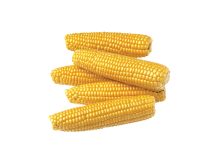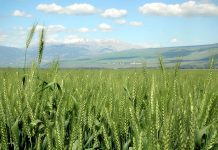
In agriculture, timing is crucial, particularly for planting and securing the necessary financing. For grain producers in South Africa, aligning financial planning with crop cycles is essential for economic sustainability and enhanced productivity.
Producers need to submit loan applications early and ensure all necessary documentation is complete. Timely applications provide sufficient time for the assessment, approval, and disbursement of funds, which must align with the agricultural season’s calendar, and still allow producers to plant within the optimal planting window. Early application is also crucial for producers to acquire production inputs at the right time. Timeous planning allows the producer to have a facility in time to enable the purchase of essential inputs like fertiliser. This will mitigate the effects of possible market fluctuations which may lead to increased costs or insufficient supplies, thus impacting production costs and profitability margins. Failing to meet these deadlines could result in missing an entire planting season, or even lead to undesired yield outputs.
It is against this background that Land Bank has introduced an application window period for grains aligned to the commodity calendar for production facilities. Therefore, it’s imperative to confirm access to finance well in advance, ideally before the season begins. Recognising the distinct needs of grain producers, Land Bank offers specialised financial products that facilitate timely and efficient agricultural operations.
Tailored financial solutions
Land Bank’s approach to agricultural financing is both innovative and supportive. One of its standout offerings is the production loan/revolving loan facility, depending on the nature of the business. This is a short-term loan that is specifically designed for the financing of agricultural inputs and other operational requirements for both crop and livestock enterprises. The repayment of this facility is linked with the income cycle of the specific enterprise when originated and is reviewed annually, ensuring adaptability to the producer’s changing needs.
What makes this product particularly attractive is its repayment flexibility. Producers can repay the loan annually or align it with the income cycle from their crops. This consideration for the agricultural production cycle alleviates the pressure on producers, allowing them to focus on maximising their yield without the immediate stress of loan repayment.
Blended finance and AEF in partnership with the Department of Agriculture
The blended finance scheme (BFS) significantly boosts the financial viability of farming enterprises by combining grants with loans, effectively doubling the farming enterprise’s capital and strengthening the balance sheet. This approach uses grants to secure additional loans, offering the necessary security and commitment that lenders seek.
Additionally, the Agro Energy Fund (AEF) specifically supports the acquisition of alternative energy assets. This fund aids in mitigating the effects of load shedding on agricultural operations, focusing on financing energy-intensive activities such as irrigation for grain farming. The qualifying criteria for these two blended finance solutions are available on the Land Bank website (www.landbank.co.za). Alternatively, producers can visit Land Bank offices in their respective provinces for assistance.
Additional benefits
Beyond the fundamental financial products, Land Bank has been purposefully facilitating market linkages, as well as technical support, to ensure that producers are enabled to succeed. These include a team of agricultural specialists who understand the nuances of grain farming, offering insights that can prevent costly missteps and enhance the overall profitability of farming operations.
The use of technology today is critical to ensure that the available resources are maximised to their full potential. Therefore, understanding the natural capital of the farm that the producer is operating on cannot be overemphasised. Geographic information systems (GIS) technology plays a pivotal role in enhancing grain farming in South Africa by enabling precise understanding of the different types of soil, climate, and terrain data which are crucial for establishing crop suitability based on the physical components of the farm. This advanced analysis helps optimise crop placement and management strategies, significantly improving crop yields and reducing operational costs. The integration of GIS not only aids in risk mitigation but also supports decision-making processes, providing grain producers with a powerful tool for increasing productivity and ensuring long-term sustainability. Land Bank has GIS technology which can also be made available to clients at a relatively affordable fee.
Why early planning is crucial
Early financial planning empowers producers to make informed decisions about their crops and management practices. With adequate funding secured in advance, producers can purchase the best seeds, invest in modern farming technologies, and implement efficient water management systems, all of which contribute to increased yield and profitability.
Conclusion
In conclusion, the timely submission of complete and accurate applications to the Land Bank is more than just a procedural necessity – it’s a strategic move that aligns financial readiness with agricultural timelines and environmental factors. For grain producers in South Africa, this preparation enables them to manage risks associated with market and weather fluctuations, ensuring they are poised for a productive season. There is much optimism for the 2024/2025 production season with the anticipated favourable conditions of La Niña following the El Niño of the 2023/2024 production season which experienced an overall grain production reduction estimated at 22%.
Producers are encouraged to contact their nearest Land Bank branch to discuss their financial needs.



















